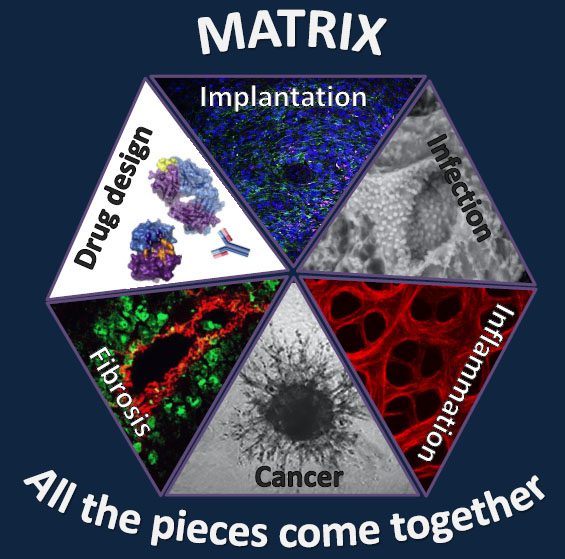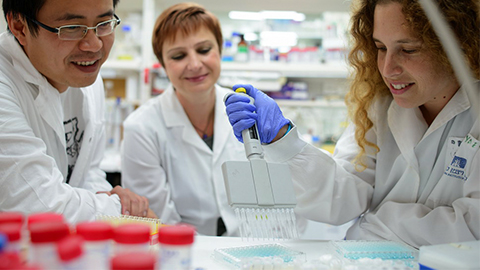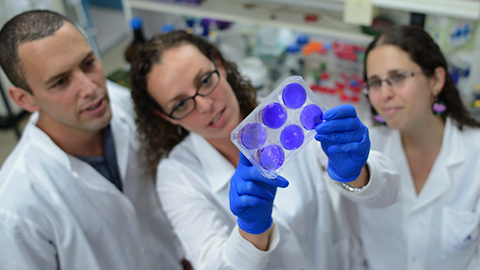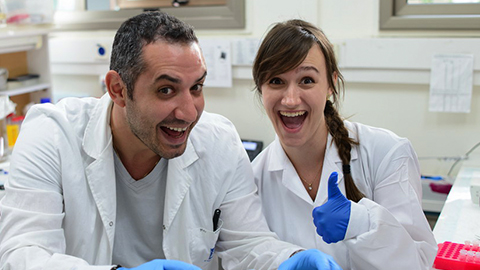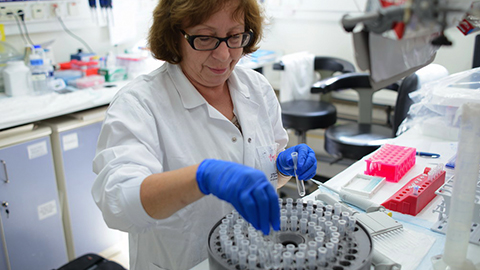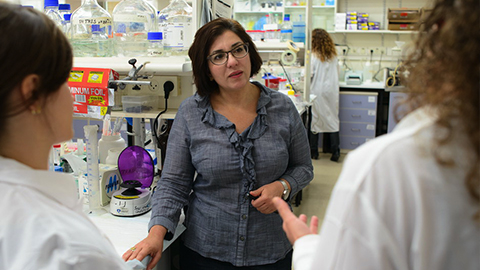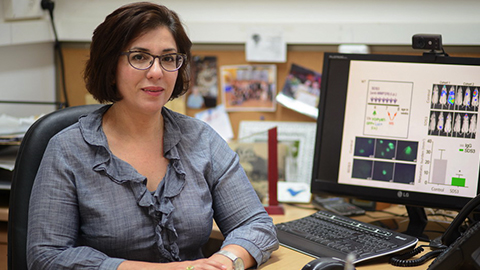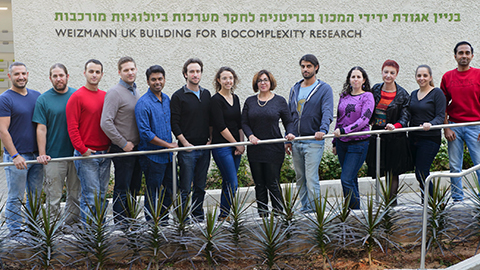Deciphering the ECM code in physiological and pathological processes
Our lab is working to develop and use novel tools to study ECM functional remodeling within the a-cellular tissue microenvironment and ECM niches. We investigate native ECM remodeling in various animal and tissue culture models in order to reveal key molecular mechanisms within physiological and pathological processes. In these studies, we utilize different approaches, including systems biology, immunological tools, molecular and biochemical methods and a wide range of imaging techniques. This multidisciplinary approach encompasses ECM research on all aspects and contributes to a deep understanding of its function.
We explore the role of the ECM and ECM remodeling enzymes in various pathological conditions like inflammatory bowel diseases (IBD), fibrosis, cancer, infectious disease, neurodevelopmental disorders and more.
In our study on IBD we are characterizing ECM dynamics and unique signature over the course of intestinal inflammation in terms of structure, composition and mechanics using a systems-level approach.
As fibrosis is a prototypical ECM pathologic condition, involving excessive accumulation of ECM proteins such as collagen, we use several fibrosis models to understand the importance of different ECM regulators in this condition (e.g. liver fibrosis and uterine fibrosis). In these studies, we utilize our in-house developed antibodies to interfere with collagen crosslinking at the fibrotic scar, which promotes the resolution of fibrosis.
It is well known that ECM enzymes contribute to tumor growth, invasion and metastasis. Hence, we study the role of MMPs in several cancer models (pancreatic, colon and breast cancer) using the neutralizing monoclonal antibodies developed in our lab (Afik et al., JEM. Exp. Med. 2016) (Grossman et al., Cancer Research 2016) .
We also found that ECM proteases are critical regulators of infectious disease outcome. Here, we are studying the effects of viral and bacterial infections on host tolerance mechanisms and found specific proteases to be key factors in those infections (Talmi-Frank et al., Cell Host & Microbe 2016).
Even organs with unique ECM composition, like the brain, are part of our extensive ECM research. Here we investigate the ECM and its modulators in Autism Spectrum Disorder, using murine models, with advanced biophysical and biochemical techniques in conjunction with behavioral tests. Additionally, we envisage examining the potential of our novel inhibitory anti-MMP antibodies.
While much of our attention has been given to dysregulated ECM remodeling in promoting various pathologies, we also elucidate the important role of the extracellular environment in mediating normal physiological processes, like embryo implantation.
